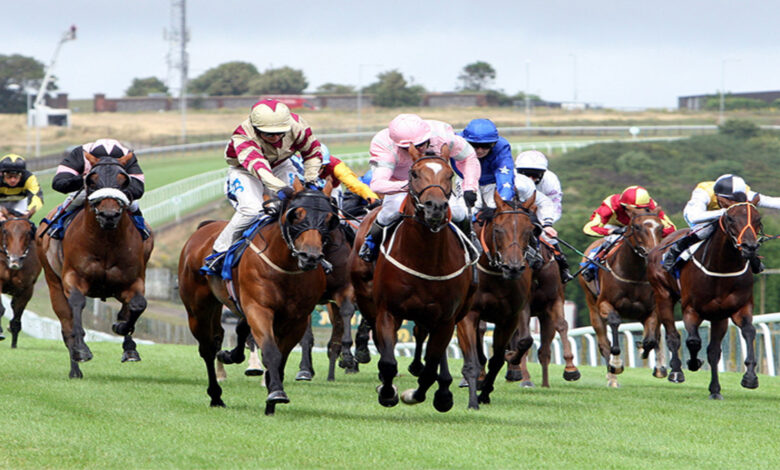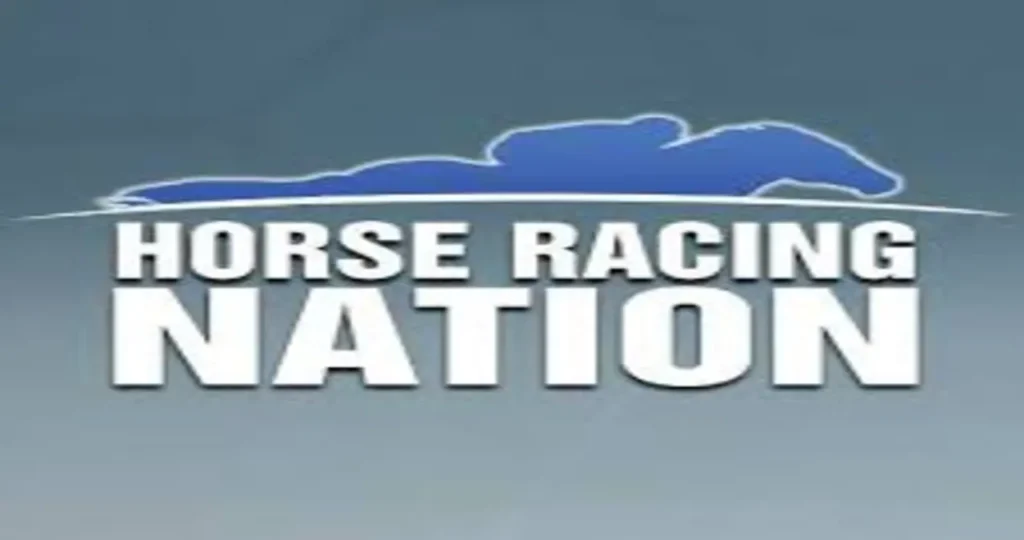Horse Racing Nation: 1The Thrill, Legacy, and Future of the Sport

Horse Racing Nation has long been a staple of sporting culture, captivating audiences with its speed, elegance, and excitement. Known as “The Sport of Kings,” it brings together tradition, adrenaline, and the undeniable bond between horse and rider. But beneath the surface of the glamour and high stakes, lies a vibrant community, often referred to as “Horse Racing Nation.” This term not only symbolizes the passionate fanbase but also the broader network of trainers, jockeys, owners, breeders, and enthusiasts who make the sport what it is today.
In this article, we’ll explore the many facets of Horse Racing Nation, examining its historical roots, current impact, and the way forward for a sport that continues to thrive in an evolving world. From the golden age of racing to modern-day innovations, we’ll cover everything from the races themselves to the people who keep the sport alive.
The Deep Roots of Horse Racing: From Ancient Traditions to Modern Spectacles
Horse racing isn’t just a sport; it’s a tradition that spans millennia. The history of racing dates back to the ancient civilizations of Mesopotamia and Egypt, where chariot racing was the precursor to what would eventually evolve into the modern sport of thoroughbred racing. In these early days, horses were bred for speed and endurance, and races were a way to demonstrate these remarkable traits. As time progressed, horse racing moved from royal courts to organized events, often set against the backdrop of grand social occasions.
By the time of the Roman Empire, horse racing nation had become a widely popular public spectacle. The Circus Maximus, a stadium in Rome, was one of the largest racing venues, seating hundreds of thousands of spectators. Fast forward to the 17th and 18th centuries, and horse racing began to solidify its role as a major form of entertainment and betting in Europe. It was during this period that thoroughbred racing emerged in its modern form, and the foundation of many of today’s prestigious races, such as the Derby, was laid.
In countries like the United Kingdom, the United States, and Australia, horse racing continued to grow in prominence. The Kentucky Derby, established in 1875, remains one of the most prestigious events in the world. The Breeders’ Cup and the Melbourne Cup, which followed, have become fixtures in the racing calendar. But what sets these races apart is not just the competition but the national fervor they inspire. It’s the heart and soul of Horse Racing Nation – a unique, vibrant community dedicated to the sport’s rich legacy.

The People Behind Horse Racing Nation: Trainers, Jockeys, and Owners
Horse racing isn’t just about the horses; it’s about the people who make the sport happen. Trainers, jockeys, and owners are at the heart of Horse Racing Nation, working tirelessly to prepare their horses for races and ensuring they perform at the highest level. Their commitment to the sport, alongside the trainers’ knowledge, the jockeys’ skill, and the owners’ investments, make horse racing the thrilling spectacle it is.
Trainers are arguably the most pivotal figures in the sport. Their role goes beyond just coaching the horses; they are responsible for the entire preparation process. A good trainer knows how to read a horse’s behavior, understand its needs, and fine-tune its abilities. They also play a crucial role in deciding the race strategy and managing the horse’s health. Some of the most legendary trainers in horse racing have turned stables into racing dynasties, creating thoroughbreds that will go on to become champions.
Jockeys are equally important and are the ones who build a connection with the horse during races. Their skill and experience, combined with the physical demands of racing, are essential for success. A jockey’s ability to navigate a crowded field, communicate with the horse, and make split-second decisions during high-stress moments is what often separates the winners from the rest of the pack. Some jockeys, like Lester Piggott and Frankie Dettori, have achieved global recognition and cult status for their extraordinary contributions to the sport.
Then there are the owners – the financiers who invest in horses, pay for training, and often bankroll breeding programs. While they don’t participate directly in the race, owners are crucial to the sport’s ecosystem, providing the capital necessary to sustain stables and support the livelihoods of trainers and jockeys. Through their involvement, they shape the future of horse racing and often cultivate future generations of successful competitors.
The Races that Define Horse Racing Nation: Legendary Events
When it comes to Horse Racing Nation, certain events stand out as the pinnacle of the sport. These races are not just competitions; they are celebrations, with traditions that go back generations. The Kentucky Derby, the Melbourne Cup, and the Preakness Stakes are just a few examples of the races that captivate millions of fans around the world.
The Kentucky Derby, often referred to as “The Run for the Roses,” is one of the most iconic events in horse racing. Held annually on the first Saturday in May, the race takes place at Churchill Downs in Louisville, Kentucky, and attracts over 150,000 spectators. Known for its rich history and prestige, the Kentucky Derby is a part of the Triple Crown series, alongside the Preakness Stakes and the Belmont Stakes. The Derby’s pageantry, complete with the famous mint julep cocktail and extravagant hats, has made it as much a cultural event as a sporting one.
Australia’s Melbourne Cup, often called “The Race That Stops a Nation,” is equally famous, with a unique status in Australian culture. Held on the first Tuesday of November, the Melbourne Cup is a public holiday in Victoria, with an estimated one in every four Australians tuning in to watch the race. Beyond its national significance, the Melbourne Cup is renowned for the skill and talent it attracts from around the world. It has also become a global affair, drawing participants from top racing nations like the UK, Japan, and the United States.
Then there’s the Breeders’ Cup, an American event that features a range of races for horses of different ages and types. The Breeders’ Cup serves as a championship series for thoroughbreds, and the races held in its name are among the most prestigious in the world. While it lacks the long history of the Kentucky Derby, it has gained significant recognition for its high stakes and global appeal. The Breeders’ Cup’s role in Horse Racing Nation has elevated the sport to new heights, particularly with its introduction of international horses and jockeys.
These events embody the spirit of Horse Racing Nation – a celebration of history, passion, and competition that brings together people from all walks of life.
Betting and Horse Racing: A Thriving Industry
Betting has long been an integral part of horse racing, with millions of dollars wagered on races every year. In fact, for many people, horse racing is as much about the thrill of betting as it is about watching the horses race. From casual punters to seasoned experts, the betting aspect of the sport adds an extra layer of excitement.
The practice of betting on horse races dates back centuries and is one of the main factors that has contributed to the sport’s popularity. Today, betting on horse races is a global industry, with legal wagering taking place in countries all over the world. In the United States, for example, you can place bets on horse races at licensed tracks, online platforms, and off-track betting facilities.
However, betting in horse racing isn’t just about picking a winner. There are various types of bets, including trifectas, exactas, and superfectas, which offer different levels of risk and reward. For the seasoned bettor, understanding the odds and handicapping methods is crucial. Handicapping involves analyzing various factors such as the horse’s past performance, the jockey’s skill, the trainer’s record, and the track conditions to predict how a race will unfold.
While the betting aspect can seem daunting for newcomers, it’s also one of the things that keeps fans coming back for more. It’s a blend of chance and skill, with fans often investing time in studying the horses and their connections before placing their bets. This adds an extra dimension to the experience, making horse racing even more thrilling.
The Evolution of Horse Racing: Modern Innovations and Technology
As with most sports, horse racing has evolved, adapting to new technologies and modern-day innovations. What was once a traditional and often old-fashioned sport has embraced technological advancements that improve everything from the training of horses to the way races are broadcast to fans around the world.
One of the most significant innovations in recent years is the use of data analytics. Jockeys and trainers now have access to more detailed statistics than ever before, allowing them to make informed decisions about race strategies and horse performance. For example, fitness tracking technology can now be used to monitor a horse’s health, providing real-time data on everything from heart rate to muscle strain. This allows trainers to customize their training regimens, ensuring that the horses are in peak condition come race day.
In addition, advances in race broadcasting have made it easier for fans to watch races from anywhere in the world. With live streaming, social media, and enhanced TV broadcasts, fans can experience the excitement of races no matter where they are. Virtual reality (VR) and augmented reality (AR) are also beginning to play a role in enhancing the viewing experience, offering a more immersive and interactive way to enjoy the sport.
Furthermore, the rise of online betting platforms has revolutionized how fans interact with the sport. Rather than having to visit a physical track to place a bet, punters can now do so from the comfort of their homes. This has opened up the sport to a younger, tech-savvy audience and has contributed to horse racing’s continued popularity in the digital age.
The Future of Horse Racing: Challenges and Opportunities
While horse racing remains one of the world’s most beloved sports, it faces its fair share of challenges. From ethical concerns regarding animal welfare to the impact of digital entertainment on traditional sports, the future of horse racing is not without its obstacles. However, with challenges come opportunities for growth and innovation.
One of the biggest challenges facing the sport is the issue of animal welfare. Critics argue that horse racing can sometimes be harmful to the animals involved, particularly about issues like over-racing, the use of whips, and the treatment of horses once they retire. As public awareness of animal rights increases, there is growing pressure on the industry to adopt more humane practices. Many racing organizations are responding by implementing stricter regulations, improving veterinary care, and ensuring better post-racing options for retired horses.
Another challenge is the increasing competition from other forms of entertainment, especially in a digital age where attention spans are shorter. Younger generations are turning to eSports and online gaming, and convincing them to invest their time in a traditional sport like horse racing can be difficult. However, the industry is adapting by offering more interactive experiences, targeting a younger demographic, and embracing the power of social media to promote the sport.
The future of horse racing also lies in its ability to innovate. As the sport adapts to new technologies and trends, it has the potential to reach even wider audiences. The introduction of virtual racing and enhanced online platforms could transform the sport’s landscape, offering new ways for fans to engage and for horse racing to grow globally.
Conclusion: Horse Racing Nation’s Timeless Appeal
Horse racing is a sport that has withstood the test of time. With its rich history, devoted community, and continuous evolution, it remains an integral part of the global sporting landscape. Horse Racing Nation encompasses all those who are passionate about the sport – from fans to trainers, jockeys, and owners – and it’s clear that this vibrant community will continue to thrive for years to come. Whether you’re a seasoned bettor or a casual fan, there’s no denying the thrill and excitement that horse racing brings.
You may also read
What is “Horse Racing Nation”?
Horse Racing Nation refers to the passionate community surrounding the sport of horse racing. This includes not only the fans but also the network of trainers, jockeys, owners, breeders, and enthusiasts who contribute to the sport’s vitality and growth. It symbolizes the deep bond between the individuals and the sport itself.
What is the historical origin of horse racing?
Horse racing dates back to ancient civilizations, including Mesopotamia and Egypt, where chariot racing was practiced. It evolved over centuries, reaching its modern form in the 17th and 18th centuries in Europe. The sport continued to grow in prominence with the creation of prestigious events like the Kentucky Derby and the Melbourne Cup.
Who are the key figures in horse racing?
The key figures in horse racing are trainers, jockeys, and owners. Trainers are responsible for preparing the horses, while jockeys use their skills to ride them during races. Owners invest in the horses and often bankroll breeding programs, supporting the sport’s ecosystem.
What are some of the most prestigious horse races in the world?
Some of the most famous races include the Kentucky Derby, Melbourne Cup, and Breeders’ Cup. These events are celebrated not just for their competition but for their cultural significance and global appeal, attracting fans and participants from around the world.
